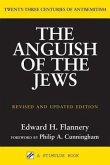Amsterdam Jews appeared up to the mid-17th century as Braudelian "great Jewish merchants." However, the New Christians, heretic judaizantes in the eyes of the Inquisition, dispersed around the world, were equally crucial. Their religious identities were fluid, but at the same time they and the "new Jews" from Amsterdam formed a part of economic modernity epitomized by the rebellious Netherlands and the developing Atlantic economy. At the height of their influence they played a pivotal, albeit controversial, role in the rising slave trade. The disappearance of New Christians in Latin America had to be contextualised with inquisitorial persecutions and growing competition in mind. In this important study, Henryk Szlajfer traces the impact of both groups.
Hinweis: Dieser Artikel kann nur an eine deutsche Lieferadresse ausgeliefert werden.
Hinweis: Dieser Artikel kann nur an eine deutsche Lieferadresse ausgeliefert werden.








